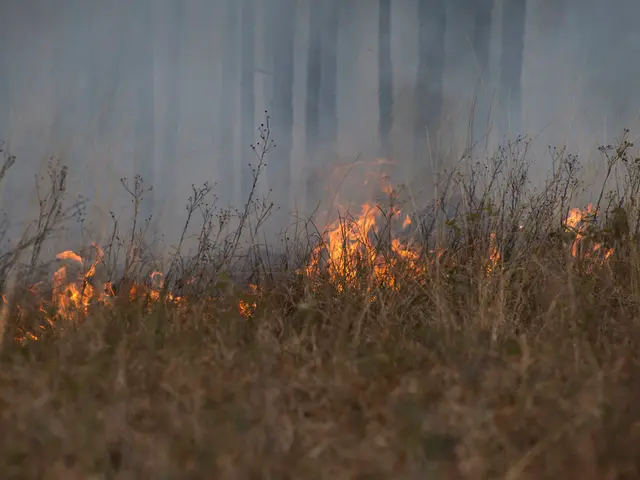Three individuals lose their lives due to power failure incident in Spain
In the quaint town of Taboadela, nestled in northwestern Spain, a heart-wrenching event unfolded as reported by La Voz de Galicia and Europa Press, citing police sources. A family of three met their unfortunate demise due to carbon monoxide poisoning. The victims were an 81-year-old couple, a 77-year-old, and their 56-year-old son. The family's eldest member relied on a ventilator, who upon the power outage, the family ignited a gasoline-powered backup generator whose exhaust fumes apparently spread undetected throughout their residence.
Blackout: The Root Cause Unveiled
Residents in Spain and Portugal experienced a return of power supply, following a sudden power grid collapse that initially left the exact origin unknown. The unexpected blackout, which lasted almost a whole day, brought Spain and Portugal to a standstill, ripping millions from their connections with the outside world and causing turmoil.
The day after this historic event, life returned largely to normalcy on Tuesday, with power supply restored in most locations. The widespread chaos of the blackout, however, left questions lingering.
"Now we're all letting out a sigh of relief, but the big question remains: Could this happen again? And what if something like this transpires in the future and lasts longer?" inquired a morning talk show aired on the state Spanish TV station, RTVE. On the airwaves, a doctor from Madrid shared an account of a chilling journey "back to the Stone Age" on the radio station, Cadena Ser.
On the morrow of the blackout, almost every home in Spain and Portugal had power reinstated. The internet, phones, and traffic signals functioned once more, following the total outage. Subways and trains resumed operation, barring some problems with commuter trains in Catalonia, a significant travel hub for thousands of commuters for work and school.
The Ultimate Enigma: Uncovering the blackout's origins
Red Eléctrica, the Spanish grid operator, confirmed the restoration of power supply on the affected mainland. Portuguese authorities reported that all 6.5 million households had power, and water supply was functioning nationwide. The entire transportation system was back to operation after the power outage.
Still, uncertainty looms over the exact causes of the unprecedented power outage that immobilized large parts of the Iberian Peninsula on Monday around 12:30 PM CEST. Investigations pointed toward the exclusion of a cyberattack, with the Spanish government attributing it a historic event. The governments in Madrid and Lisbon conducted crisis meetings the following day, with the Spanish meeting taking place under the chairmanship of King Felipe VI.
Subsequently, the Spanish Prime Minister, Pedro Sánchez, declared, "This must never occur again!" Sánchez pledged to hold private suppliers accountable and instigate improvements to the supply system. Chilling testimonies poured in from victims who had endured the blackout, describing their ordeals and the remarkable patience demonstrated by the public.
- The tragic case of carbon monoxide poisoning in Taboadela, Galicia, was a grim reminder of the dangers hidden in our homes, especially during power outages caused by unforeseen events like the recent blackout that swept through Spain and Portugal.
- The backup generator used by the family in Taboadela, who perished due to carbon monoxide poisoning, underscores the need for safety precautions and regular checks for such devices to prevent similar accidents in the future.
- In the aftermath of the blackout, general news outlets reported an increase in car-accidents and fires as emergency services were overwhelmed, indicating the widespread chaos caused by the power outage.
- As investigations continue to uncover the exact causes of the blackout, it is crucial to consider the impact of such events, not only on the power grid but also on the lives of individuals, as seen in the tragic incident in Taboadela.
- Looking ahead, it is imperative that governments, such as those in Spain and Portugal, prioritize strengthening their power supplies and emergency response systems to prevent a recurrence of such traumatic events and ensure the safety of their citizens.








